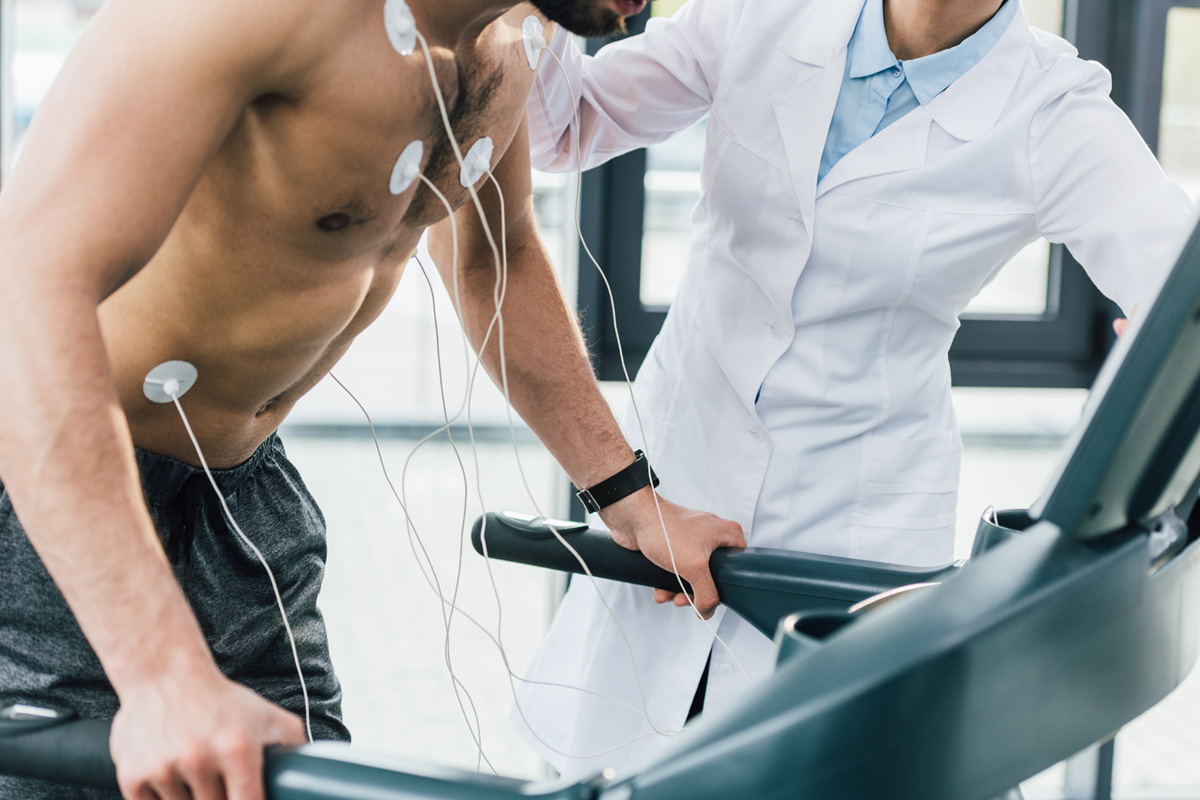What is The Test?
This test helps diagnose coronary artery disease, monitors blood pressure in response to exercise and determines your exercise tolerance.
Patient Preparation
There is nothing to eat 4 hours before the test and no caffeine for 12 hours prior to the test. Medications may be taken unless told not to by your physician. Wear comfortable clothing and comfortable walking shoes.

What to Expect
Once in the testing room, we will ask you to sign a consent form to give us permission to perform the exercise treadmill stress test. We will ask you to take your shirt off and prepare the skin on your chest for the EKG electrodes to be placed. Once the electrodes are in place and you are connected to the EKG monitor, the treadmill stress test will begin. A target heart rate will be calculated for you based on your age. This target heart rate will need to be met for exam accuracy. You will begin walking on the treadmill. The treadmill speed will start at a slow pace but will increase in speed and incline every three minutes until your target heart rate is met. While walking on the treadmill, your heart rate, heart rhythm and blood pressures are monitored and recorded. Once you have reached your target heart rate by walking or running on the treadmill the exam is complete. This exam will take approximately 30 minutes. Once completed, our cardiologist will review the collected information to determine your exercise tolerance and the presence of coronary artery disease. The results will be discussed with you during your follow up office visit.
Nuclear Stress Test FAQs
A stress test is run by doctors to study how well your heart handles workloads. The test makes your heart work harder to pump more blood. It specifically shows blood supply in the arteries that lead to the heart and tests how well your blood flow to your heart is.
Prior to your stress test, your doctor will ask you some questions about your overall health and cardiovascular activity. This will give them an idea of the amount of exercise they will have you complete for the test. Your doctor will also do an overall assessment of your heart and lungs to make sure they are aware of any abnormalities that may change the outcome of your stress test.
After your stress test you will likely feel tired and out of breath. You will be asked to stand still for a few seconds and then told you can lie down. During this period your doctor will observe and check for any abnormalities as your heart rate slows back to normal, and your breathing slows down.

